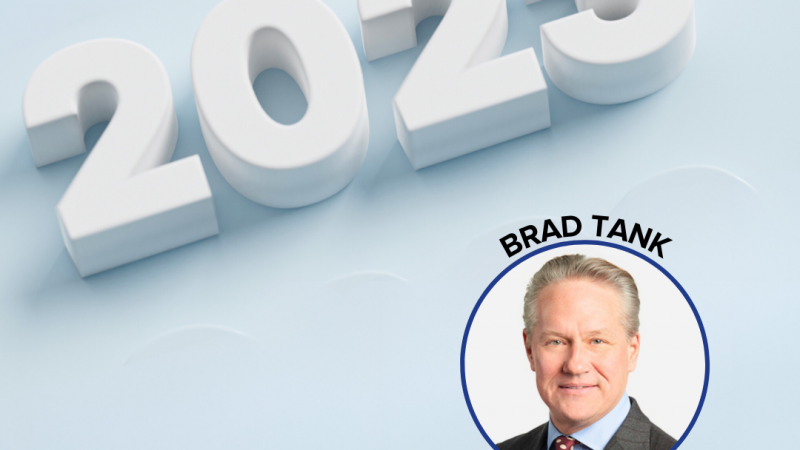The U.S. economy has performed much better in 2023 than was projected a year ago, according to economist and UW-Madison alumnus Brad Tank.
“The forecast last year [was] resoundingly in favor of a much slower economy than actually materialized,” he said last week.
Tank is the chief investment officer for Neuberger Berman, an asset management firm with more than $400 billion under management. Speaking during the Wisconsin Alumni Association’s latest UW Now livestream, he said federal officials are successfully tamping down inflation despite ongoing economic headwinds.
Tank noted November headline price inflation was 3.1% while the “core” inflation rate that omits food and energy was about 4%. At the same point of 2022, both of those numbers were near 7%, he said, adding the Federal Reserve should get “a pretty good grade” on its efforts.
“So not only did they make some terrific accomplishments on the inflation front, they’ve managed to do it so far without an economic contraction and surprisingly strong economic growth,” he said.
Still, the global economy continues to experience “very unusual aftershocks” of post-pandemic monetary and fiscal policies.
“They are receding, there’s no question about it, but if we look at some of the reasons as to why forecasters got 2023 wrong in terms of economic growth, a lot of it just has to do with the unique characteristics of the post-COVID world economy,” he said.
In one example, he highlighted the “rise of the worker” as increasing wages have helped keep the national economy from slipping into a recession.
“At the time when a lot of the direct payments from the federal government either to businesses or directly to families and consumers were running out, wage growth was beginning to overtake generalized price inflation,” he said. “And it means that even here today, while the consumer is showing some signs of softening, the consumer in the United States remains in much better shape than people anticipated a year ago.”
Looking ahead to 2024, two-thirds of economic forecasters are now predicting a so-called “soft landing” or deceleration in growth without economic contraction, he said. Another third are expecting a recession or “meaningful” downturn.
“Consensus on inflation is, it’s going to continue to climb,” he said. “It will not get to [the Fed’s] target of 2%, but from current levels we’ll be in the mid-twos by the end of the year. And we generally don’t have much of a quarrel with that consensus forecast on inflation.”
He pointed to some complicating factors that could change that outlook, such as potential shifts in food and energy markets. Regional instability linked to conflicts such as the war between Russia and Ukraine could influence those factors, Tank noted.
Watch the video: https://www.youtube.com/watch?v=kmHgpwLAn8I
–By Alex Moe



